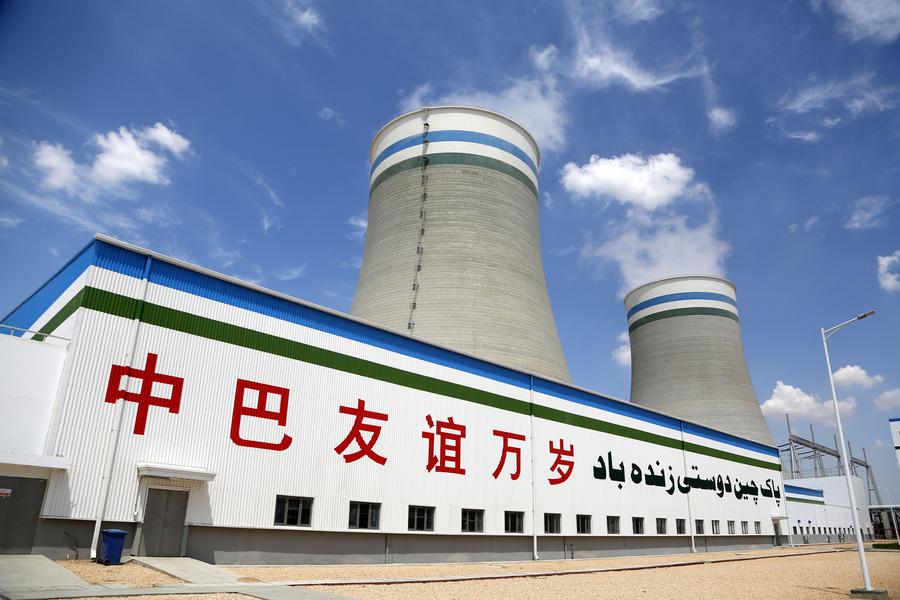CPEC's success hinges on peace in Balochistan


The recent hijacking of a train and holding of civilians and military personnel hostages by the Balochistan Liberation Army in Pakistan's Balochistan province, and its confrontation with security forces highlight Islamabad's ongoing struggle with terrorism.
While the Pakistani military neutralized the immediate threat, such incidents raise serious concerns about the country's internal security and their implications for large-scale infrastructure projects, particularly the China-Pakistan Economic Corridor. Recurrent terrorist attacks deter foreign investment, demoralize the workforce and undermine the viability of development initiatives, especially in the Pakistani provinces bordering Afghanistan.
Foreign direct investment is susceptible to political instability. The insurgency in Balochistan has created an environment of uncertainty, discouraging international investors from committing resources to development projects in the province.
The ability of militant groups to launch deadly attacks exposes the gaps in Pakistan's counterterrorism strategy, and poses a risk to the long-term sustainability of economic ventures. Since the CPEC depends heavily on foreign capital and expertise, the security threats hinder development work, limiting the socioeconomic benefits Pakistan seeks to derive from the economic corridor which is part of the China-proposed Belt and Road Initiative.
Beyond investment concerns, persistent security threats demoralize both local and foreign workers involved in CPEC and related projects. Engineers, other workers, and security personnel, essential to the timely execution of infrastructure and energy initiatives, operate under constant fear of insurgents' attacks. This insecurity leads to disruptions in work, delays in project completion, and increases operational costs due to heightened security requirements.
To counter terrorism, particularly in Balochistan, Pakistan needs a comprehensive counterterrorism strategy. While kinetic measures are crucial for eliminating immediate threats, their sustainable resolution requires a broader political consensus. One of the key shortcomings of Pakistan's counterterrorism strategy is the absence of a unified stance on counterinsurgency operations in Balochistan. By wholeheartedly supporting the counterterrorism initiatives, the major political stakeholders would enhance their legitimacy and effectiveness, fostering a more stable environment for economic development.
Policymakers ought to keep in mind that the insurgency in Balochistan is fundamentally a political issue that must be addressed through political means. In Baloch people's eyes, decades of social marginalization, economic deprivation and inadequate political representation have fueled resentment, creating the scope for militant groups to build resistance by spreading baseless narratives. To counter this, the Pakistani government should engage with local political and social groups in a manner that ensures their meaningful participation in governance and the development process. A viable counterterrorism strategy could include the following elements.
Empowering local leaders and ensuring their representation in the decision-making process can help bridge the trust deficit between the Pakistani government and the Baloch people.
Prioritizing socioeconomic development through targeted economic initiatives, increased employment opportunities and better access to education and healthcare can mitigate the sense of exclusion among the local people. The CPEC has the potential to realize these objectives.
Initiating dialogue with local leaders, especially the existing and emerging middle class, can foster reconciliation and thus diminish support for militant groups.
Hard security measures, in most cases, provide short-term stability; they cannot lead to a permanent resolution to the Balochistan issue. Hence, a politically driven approach that prioritizes micro-level empowerment, political and administrative inclusion, and socioeconomic development is essential for fostering peace in this region.
Durable peace, rather than temporary suppression of insurgency, is a prerequisite for the CPEC's success and the realization of Pakistan's economic and strategic objectives. To secure the CPEC infrastructure and keep its workforce motivated, the Pakistani authorities have to work closely with their Chinese counterparts to devise a coordinated plan of action.
The author, a guest researcher at the Fudan Development Institute, Fudan University, is an associate professor at the Lahore School of Economics in Pakistan. The views don't necessarily reflect those of China Daily.
If you have a specific expertise, or would like to share your thought about our stories, then send us your writings at opinion@chinadaily.com.cn, and comment@chinadaily.com.cn.


































